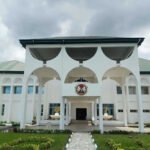The United States Agency for International Development (USAID) has launched the Momentum Country and Global Leadership (MCGL) programme in Nigeria to address gender-related issues in Sokoto and Ebonyi.
Development Diaries understands that the four-year programme, worth $5million, aims to prevent and provide a swift response to gender-based violence (GBV) in the states.
From forced and early marriage to the physical, mental, and sexual abuse of women and girls, nearly three in ten Nigerian women have experienced GBV by age 15 according to the Nigeria Demography Health Survey (NDHS).
The GBV menace in Nigeria is driven by structural inequalities and unequal power relations that render women subordinate due to limited access to education, employment, finance, and opportunities to support their families and contribute to the growth and development of their communities.
The MCGL project is expected to reduce maternal and child mortality by increasing Nigeria’s commitment to providing health care services.
It is also expected to address drivers of child, early and forced marriage and mitigate the impact of violence against women and girls.
‘This new activity from USAID will strengthen GBV response mechanisms, help communities transform discriminatory gender and social norms that continue to subordinate women and make them vulnerable, and uphold and defend women’s health and human rights’, U.S. Chargé d’Affaires, Kathleen FitzGibbon, said at the programme launch.
‘It will increase women’s voice and agency and reduce their vulnerability to gender-based violence’.
Also speaking at the launch, Vice President Yemi Osinbajo, represented by the country’s Minister for Humanitarian Affairs, Sadiya Farouq, and the Minister for Women Affairs, Pauline Tallen, said that the government was committed to addressing the challenges of women and girls.
‘We are committed to working together for a safer society for women, girls and the vulnerable’, Farouq said.
‘No time is more appropriate than now to adopt a policy of zero tolerance for gender-based violence in Nigeria’.
It is understood that MCGL is already working in Sokoto and Ebonyi to engage communities, elected and traditional leaders, and a growing coalition of stakeholders to explore social norms that drive GBV.
According to a statement from USAID, Jphiego will lead a growing consortium of Nigerian organisations to implement MCGL in the states due to their statistically high rates of GBV incidence.
Source: USAID
Photo source: USAID






